How ESL Teachers Can Make Thanksgiving Lessons Inclusive and Engaging for Diverse Classrooms?
***Disclaimer: In this blog, the terms ESL students (English as a Second Language), ELLs (English Language Learners), and ML (Multilingual Learners) are used interchangeably. While “Multilingual Learners” is becoming the more widely accepted term, “ESL students” and “English Language Learners” are still commonly used in various contexts. My aim is to be inclusive and clear to all readers, regardless of the terminology they are familiar with.
1. Emphasize Inclusivity and Cultural Sensitivity In Your ESL Lessons
Thanksgiving can be a beautiful opportunity to discuss themes of gratitude and inclusion with ESL students from varied backgrounds. One way to do this is through a relatable story. With my grades 3-8 I love to read “Molly’s Pilgrim” by Barbara Cohen.
When I teach Molly’s Pilgrim by Barbara Cohen as a read-aloud for grades 3-8, the beautiful illustrations make it especially accessible—even for newcomers. The detailed images in the book provide context that helps students follow along, making the story’s themes more understandable and relatable. Molly, a recent immigrant like many of our students, faces challenges with making friends and feeling different, which opens up a meaningful discussion on inclusion.
I like to connect this to students’ own lives by discussing how they’re like “modern-day Pilgrims,” and then guiding them in creating a Thanksgiving writing craft using the Mayflower or Pilgrim hat template where they share their own immigration stories. They can include details about their journey, who they came with, languages they speak, and feelings about their new home. This activity honors their backgrounds and builds connections with Thanksgiving’s themes.
This activity is always a Thanksgiving favorite with my students! As an alternative to the writing craft, you can have students create a Thanksgiving Pilgrim doll using a clothespin to represent themselves and their culture. One year, we took this project further by incorporating unique elements: students created clothes in their flag’s colors, added symbols meaningful to their culture, and included other creative details. This variation lets students celebrate their backgrounds and share what makes their stories special, fostering pride and connection.This activity was a bit of a challenge in terms of organizing materials, so I eventually transitioned to using simpler Mayflower ship or Pilgrim hat paper templates.
2. Build Oral Language Skills with Thanksgiving Themed Picture Books
For younger ESL learners in grades K-2, "Turkey Trouble" by Wendi Silvano is a favorite Thanksgiving read-aloud. The story follows a turkey who disguises himself to avoid becoming dinner. We spend a week reading this book, focusing on different comprehension skills each day, like identifying characters, sequencing events, and discussing character emotions. As a final project, students choose and write about their favorite turkey disguise, creating turkey in disguise craft and writing all about it while applying newly learned vocabulary.
Using picture books as a scaffold is especially beneficial for young bilingual students, as images support comprehension while building language skills.
3. Build Your ESL Students’ Thanksgiving Vocabulary with PWIM and See-Think-Wonder
1. PWIM (Picture Word Inductive Model) Using PWIM, display a Thanksgiving-themed image on your board—perhaps of a Thanksgiving feast or a Pilgrim and Native American scene. Start by asking students to label nouns and adjectives they observe in the image (e.g., “turkey,” “big table”). This activity supports vocabulary building and sets a foundation for Thanksgiving-themed writing prompts, such as describing a holiday meal or sharing a gratitude list.
2. See-Think-Wonder Routine The See-Think-Wonder routine can also deepen vocabulary and critical thinking. Choose a Thanksgiving image and guide students to complete sentence starters:
- See: “I see…” (basic observations)
- Think: “I think…” (interpretations)
- Wonder: “I wonder…” (questions they have)
4. Help Your ESL Newcomers Transition From Tracing, Labeling to Writing about Thanksgiving
For beginners, tracing and labeling exercises can be helpful. Choose images like the Pilgrims on the Mayflower or a traditional Thanksgiving feast. Label people, actions, and objects in the scene, helping students associate vocabulary with images.
Play some Thanksgiving nouns and verbs sorting and matching games.
And once students are comfortable, they can create short written pieces, comparing “Thanksgiving in the Past” to “Thanksgiving Now.”
5. Share Simple Texts: Thanksgiving in the Past and Thanksgiving Now
Finding accessible texts on Thanksgiving for English language learners can be challenging, which is why I created two simplified booklets specifically designed for ESL students.
The "Thanksgiving in the Past" booklet explores the history and traditions of early Thanksgiving celebrations, focusing on vocabulary like “feast,” “harvest,” and “Pilgrims.” The "Thanksgiving Now" booklet highlights modern celebrations and customs, with vocabulary around family gatherings, food, and gratitude. Both booklets are scaffolded for different proficiency levels, providing engaging reading that’s accessible and culturally relevant for diverse learners.
6. Incorporate Multi-Sensory Learning
Engage all the senses to make Thanksgiving vocabulary memorable, especially for younger learners. Set up Sensory Vocabulary Stations with items like pumpkin pie spice, fall leaves, and Thanksgiving food images. Let students describe the items to build descriptive vocabulary and sensory awareness. A Thanksgiving Taste Test can further enhance this lesson, as students taste traditional foods and discuss flavors and textures, combining language learning with cultural exposure.
7. ESL Thanksgiving Interactive Word Study and Vocabulary Games
Finally, Thanksgiving-themed games are ideal for engaging ESL students in vocabulary and short vowel practice in a fun, festive context. Games like CVC mazes, matching exercises, and tracing activities help students build word recognition and phonics skills while incorporating Thanksgiving elements to make learning relevant and culturally meaningful.
8. Sprinkle Thanksgiving-Themed Vocabulary Activities into Your Morning Routine
Morning meetings are a perfect time to incorporate Thanksgiving vocabulary activities to build language skills in a fun, low-pressure way. For instance, during calendar time, help students create a Thanksgiving-themed pattern using Pilgrim hats and Mayflower ship tiles, which reinforces sequencing and vocabulary simultaneously.
Additionally, playing a Thanksgiving-themed "Would You Rather?" game encourages students to practice speaking, listening, and using new vocabulary in a social, interactive setting. These activities infuse Thanksgiving spirit into daily routines while building language confidence.
By focusing on inclusive stories, interactive learning, and sensory activities, you can create a Thanksgiving activities that resonates deeply with students from all backgrounds and leaves a lasting impact.
How do you make Thanksgiving relevant and inclusive in your ESL classroom?
Happy Teaching and Happy Thanksgiving
ESL Resource Meet
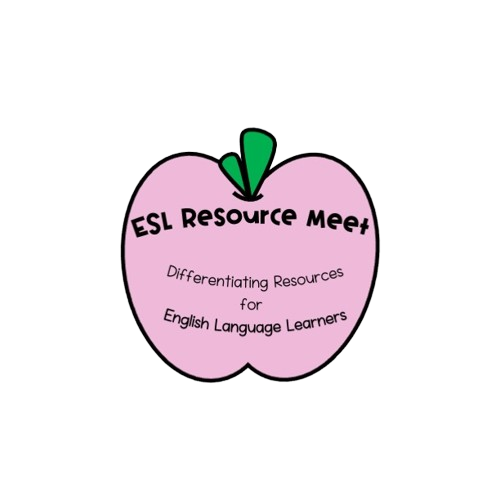







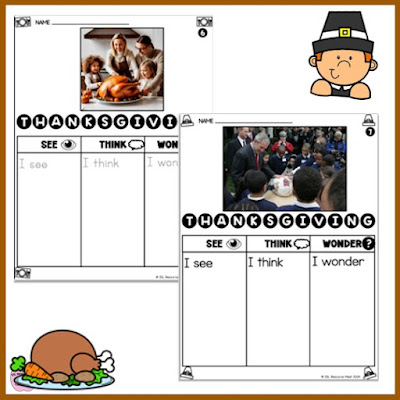
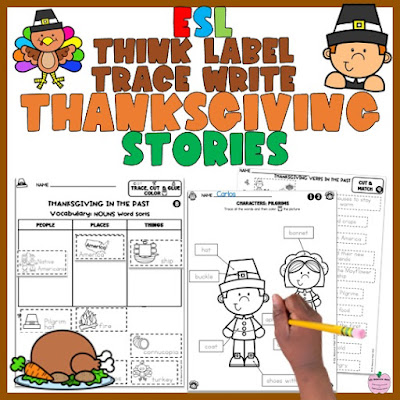


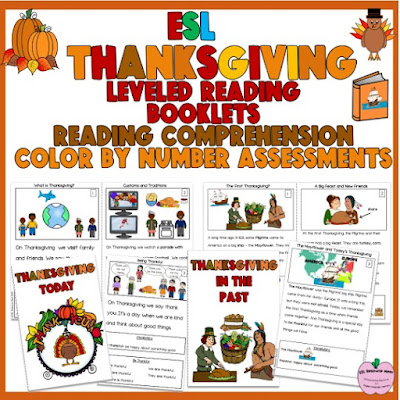

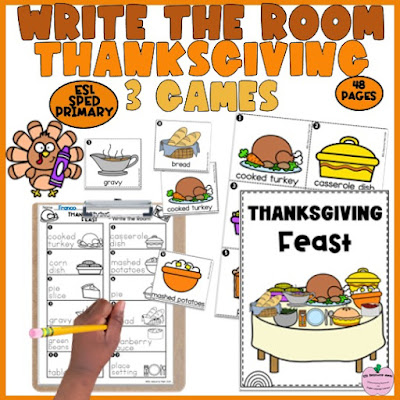












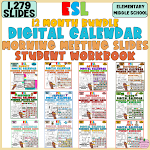





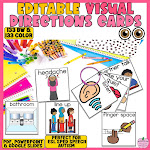




































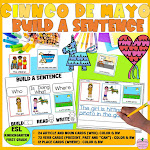







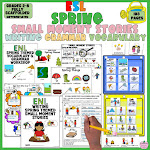




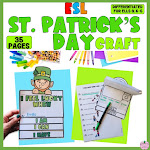
















































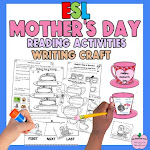
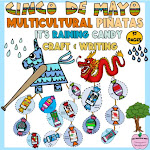
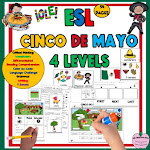
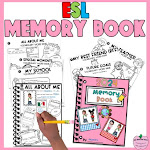




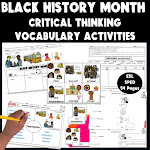
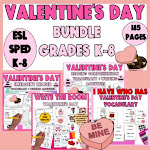
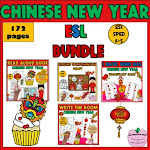

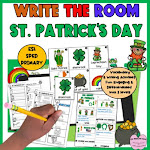
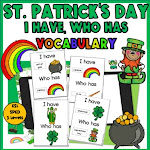
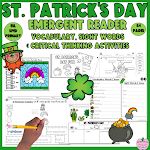



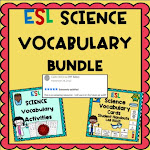




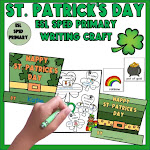

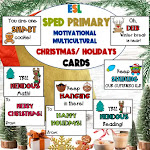
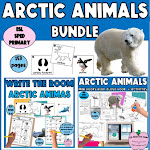

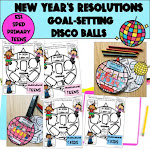
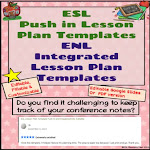




0 Comments